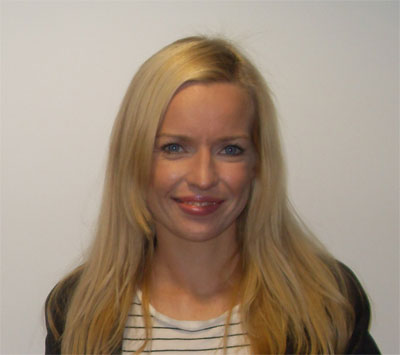Kelsey Jones Taking Action against Bullying Interview

Kelsey Jones Taking Action against Bullying Interview
You children might be bullied but unless you look for the signs, you might now recognise them. And bullying comes in all shapes - verbal, physical, social and psychological.
A QUT (Queensland University of Technology) study found that traditional bullying was trice as prevalent as cyber bullying, with 30% of students claiming to have been bullied.
Interview with Kelsey Jones
Question: Could you please explain, in detail, the different types of bullying: verbal, physical, social and psychological?
Kelsey Jones: It's interesting as I think we all have an idea of what we think bullying is, and what we try to get across to the young people on our programs is that bullying can take many forms.
We want them to be able to identify that what they may see as harmful playground fun, could constitute as bullying with serious consequences for the bully and the person being bullied.
The most obvious one and the one that's perhaps easiest to spot is physical bullying – this is anything from hitting and punching someone to scratching, tripping or even staring at someone.
The second one is verbal bullying, we may automatically think this is name calling, which it is, but it's more than that. It's teasing or humiliating someone, being sarcastic, insulting them or threatening them – all of which may not have bruises and scars to show for it but the effects can last even longer.
Social and psychological can be just as hurtful and damaging when it comes to bullying. By socially ostracising someone you are excluding them, cutting them off from friendship groups and psychological bullying, such as spreading rumours or using facebook or texts to abuse someone, is becoming more prevalent and can have consequences now and in later life for both parties.
Question: What signs should parents look for in their children to determine if they may be being bullied?
Kelsey Jones: It's different for every child and it can depend on a number of factors however as a general rule there are the signs that you can actually see – cuts, bruises, ripped clothing etc, but then there are others like a refusal to go to school, loss of confidence, changes in personality. Sometimes people who are experiencing bullying also get quite aggressive themselves and may take this out on family members.
Question: What advise do you have for parents who believe their children are being bullied, at school?
Kelsey Jones: Schools have policies to deal with bullying so if you're worried that your child is being bullied, talk to the school and work with them to address the issue. There are a few websites that offer advice to parents too so they could visit www.bullyingnoway.gov.au or www.theline.gov.au/home
Question: What role does YWCA NSW play in preventing bullying?
Kelsey Jones: YWCA NSW runs a number of programs that are specifically designed to address the issues that young people face throughout their formative years, including bullying, to equip them with the skills they need to make informed decisions about present and future relationships.
In fact, most of our programs for young people focus on preventing and/or tackling bullying in some way. This could be directly addressing the issue and giving young people the skills they need to identify and deal with bullying or it could be looking deeper into the reasons for bullying and addressing them by boosting self-esteem, providing positive role models, leadership skills, social skills etc.
Question: Can you talk about the programs you run which aim to address bullying?
Kelsey Jones: As mentioned, we run many programs that aim to address bullying. These may not be programs that are specifically about anti-bullying, but they may contain elements, workshops or modules that cover the issue.
Some of these programs include Yise Up, which are Healthy & Safe Relationship Workshops that are delivered in schools from year 6 right through to the end of high school. Yise Up aims to tackle the issue of bullying by raising awareness of what bullying actually is, why it is harmful and how to stop it and provide participants with strategies to build their resilience. Yise Up runs in the Shoalhaven area of NSW.
Programs such as Links to Learning and Paths to Potential, which work with young people in Sydney, Parramatta and Nowra from the age of 14 who are at risk of dropping out of the school system, or already have, also tackle bullying in similar ways. One example of how YWCA NSW is tacking bullying in these programs is through an approach called Forum Theatre - an engaging role play where bullying is the key focus and the YWCA NSW coordinators play out a scene in which a young person is affected by bullying. Participants watch and as the role play is acted out for the second time, they get the chance to intervene in the theatre and use their own initiative to suggest, and act out, how things could be done differently to achieve a better outcome.
What we've found, from student feedback is that this approach really works. We recently had one Links to Learning student comment that the bullying had stopped because of the program.
Working with primary school students in Sydney's South West, South East and metro regions, YWCA NSW's In-School Mentoring programs also focus on the prevention of bullying. School is a vital time and place for early intervention and prevention in the lives of young people particularly those who lack positive role models in their lives. YWCA NSW's school based mentoring programs play a critical role in supporting young people through positive role modeling and the outcomes are improved social and emotional wellbeing, better peer relationships and social skills, improved behavior and resilience - all factors which help address bullying.
Question: What is the Paths to Potential program?
Kelsey Jones: Paths to Potential is a series of workshops for 15-24 years olds who have either left education early or are at high risk of leaving early. It looks at four key areas to boost the life and employment skills of young people. Topics that are covered include Resilience, Healthy Relationships, Leadership and Career Development.
At the end of the series of workshops the aim is that the young people will have increased confidence, self-awareness and motivation, they will have developed skills to assist them in making positive decisions over their relationships and career options, they'll be able to identify their strengths and abilities, set goals and by learning these skills, they'll have boosted their chances of finding employment.
Question: What success have you had with the Links to Learning program?
Kelsey Jones: We've had tremendous success with the Links to Learning program. As mentioned earlier, our Forum Theatre approach to many issues young people face, including bullying, has actually helped identify and stop cases of bullying. We also get feedback from students and teachers that our programs are making a difference not only with the issue of bullying but in many aspects of their education and relationships with friends, family and school peers, which of course is our ultimate aim.
Question: Can you talk about how bullying has changed over the past couple of years?
Kelsey Jones: With the increase in social networking and the access to these sites now even easier through mobile phones, laptops etc we've seen cyber bullying become more common. With this has come an increasing concern from parents who are needing to become more -tech-savvy' in order to address and understand what cyber bullying means and the steps they can take to help their child address it.
Question: A study recently found that traditional bullying is trice as prevalent as cyber bullying – did this surprise you?
Kelsey Jones: No. Bullying has been around for a very long time and -traditional' bullying can take on many forms and can be more common in everyday life than you might think – it's not always physical and easy to see. That's why it's important for educate people about what bullying is and give them the opportunity to build the skills and resilience to empower them to speak out and stop bullying, rather than suffering in silence.
MORE
- How to Conquer Bad Winter Health Habits
- Resident Evil: What Lies Outside'
- 1.5 million for 1.5 million Victorians...
- Be U Not a Bully Forum for Parents and Teens
- New Screening Test Recommended To Help Prevent...
- Vitamin D Mushrooms May Solve Health Dilemma
- Gemma Howorth World-First Solates Class Interview
- Federal Government Clarifies Carer Allowance...
- Fiona Clark Sleep Problems Linked to Bullying...
- Elective Surgery and Emergency Care on Increase
- Emotional Stress Proves to be a Pain in the Back
- CPSA applauds Choice IPL and Laser Regulation...
- Karen Kaye Complementary Medicines Are...
- Danielle Stowasser Pain Relief Interview
- Dr Weng Sam Type 2 Diabetes Medication Interview
- Blood Clots and Stroke Fourth Indicator
- An Unhealthy Mouth can lead to Heart Disease
- Sharing MS Diagnosis Key To Retaining Employment
- CanTeen Counselling Service
- Australia Leads The Way With HPV Vaccination Of...
- Chloe Cunningham No More Angels Lost to...





